
Ever wonder why your resolutions fail?
Do you feel like you have to make resolutions?
It’s a new year … everybody else is … are you conforming to the social pressures of “should-ing”?
STOP I Say & PUT THE BREAKS ON!
I never make them and here are a few of my top tips to help you succeed in the New Year. http://bit.ly/2CHJ3lw
What do you do? Share your secrets to success in the comments below.
http://bit.ly/2CHJ3lw
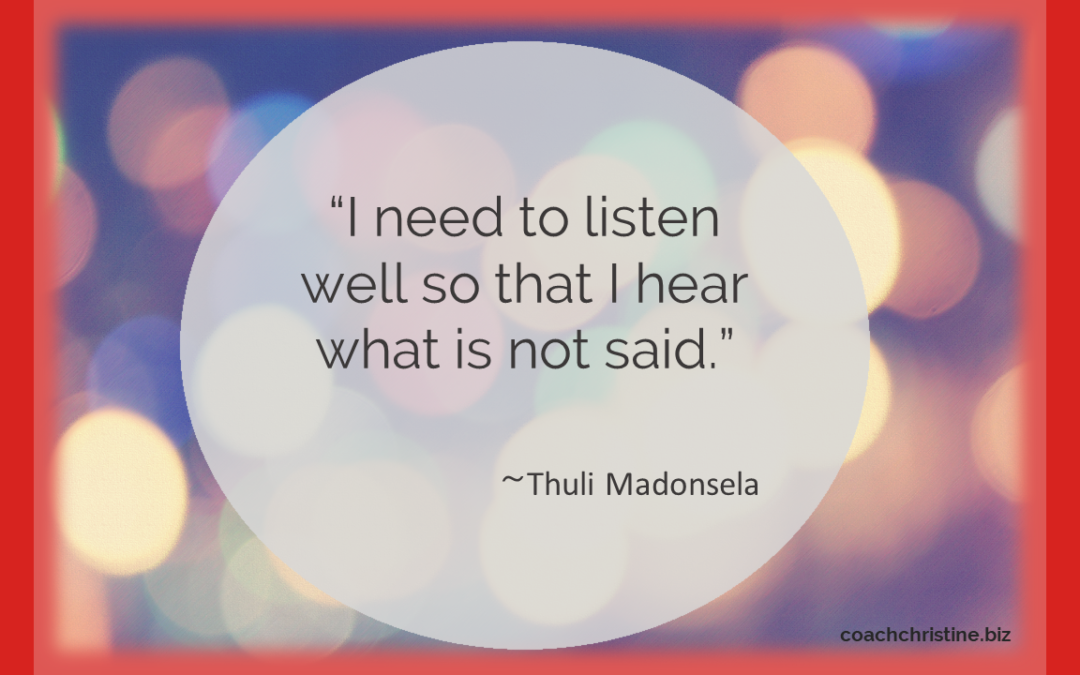
A leader of significance, named by Times as one of the most influential people of the world among other notable accomplishments, Thuli Madonsela also assisted in writing South Africa’s final constitution.
![8 Ways to Bust Obstacles and Build Your Strengths [FORBES]](https://coachchristine.biz/wp-content/uploads/2017/12/image-for-8-ways-to-bust-obstacles.jpg)
Originally published through Forbes Coaches Council.
Imagine overcoming obstacles
knocking down barriers and leading valuable
timely conversations that are a win-win for all
Winning-ways and rich relationships that are robust and productive come from clear communication. What do we need to do and who do we need to be to become master communicators and have strong relationships?
We tend to first look at others’ behaviors and attitudes, but it is the skillful leader who first turns the lens within, discovering soft spots and ways to build and grow themselves. Becoming a leader whom others want to follow (like potential clients, colleagues or teams) is about understanding the needs and wants of others while meeting your needs and expectations.
Our first order of business is understanding our mindset and attitudes and the impact they have on our personal and professional lives. If you’re in a leadership position in business, or you’re a community builder or an entrepreneur, you too will find these grit- and grin-building tools valuable.
Compass Points
Your mindset is your belief of the world, how you perceive the world and how you fit into the world. It shapes your thoughts, forming beliefs, attitudes and behaviors that create your actions.
Psychologist Carol Dweck of Stanford University wrote about two mindsets . A fixed mindset is rigid in belief and action and believes that basic characteristics, like intelligence, are a measure of success or failure. There is a continual push to prove oneself, as failure is seen as a negative. On the other hand, the growth mindset is flexible, believes in hard work, seeks to excel and doesn’t avoid failure, using it instead to improve.
Obstacles and Opportunities:
Here are important questions to ask to help understand your obstacles and grow your opportunities:
- Which is your operating mindset?
- How does it serve you?
- What’s needed or possible to change or improve?
Your mindset is one of the points on your compass, but not the only one. A positive mindset leads to resilient, gritty behavior. Resilience works in tandem with a flexible mindset, where obstacles are course-corrections rather than roadblocks.
Attitudes and Impact:
Your attitude carries a lot of weight too. Preston Ni of Psychology Today talks about different negative attitudes and their impact on personal and professional life. Here are eight warning signs of harmful attitudes and how to bust obstacles and build your strengths:
- Negative self-talk: “I’ll never make quota.” “I just know I’m going to fail.” “No one is interested in my opinion.” Every time we send ourselves a negative message, we undermine our confidence and even self-sabotage our success. Pay attention to the messages you give yourself — find your grit and grin beyond negativity.
- Negative assumptions: Sometimes things go wrong. Traffic jams develop, spills happen, phone batteries die. None of these are inherently positive or negative but our response to them can be. Your choice of response can make you happier or more stressed and luckily your response is completely in your control.
- Negative comparisons: There will always be someone with a bigger car, a higher salary, a shinier watch or a bigger boat. If you constantly measure yourself against others, you will end up stressed, dissatisfied and depressed. Focus on your accomplishments!
- Negative ruminations about the past: We all have moments that we wish we could rewind and do over. If you botched a big presentation, instead of replaying it on a constant loop, learn from it and move on. Focusing on past failure prevents you from seeing new possibilities. Be resilient, own the past and keep moving forward.
- Dealing with difficult people: Some people are jerks, bullies or have made passive-aggressive behavior an art form. They intimidate, threaten, manipulate facts and situations and often take advantage of others. What’s the point in fighting them, right? They always win. Except, they don’t. Instead of reacting and feeling like a victim, you can learn to use strategies and techniques to counter their behaviour and stay in control.
- Blaming: We all know people who deflect responsibility to anyone but themselves. They are late for a meeting because the guy in the car in front of them was driving too slow, not because they didn’t allow extra time for delays. It’s often easier to blame someone else than to take ownership and accountability, but it leads to bitterness and resentment. Take ownership of your choices and actions.
- Neglecting to forgive yourself: Mistakes happen. Learning to forgive yourself for past mistakes can be difficult. As Ni says, “There may be an accompanying sense of self-blame at the blunders made, damage done or opportunities missed. You might think of yourself as a ‘bad’ or ‘flawed’ person and wallow in guilt. During these moments, it’s extremely important to be compassionate with yourself, knowing that now that you’re more aware, you have a chance to avoid repeating past mistakes, and to make a positive difference with yourself and others.”
- Fear of failure and making mistakes: Taking a risk and stepping out of your comfort zone can lead to great new opportunities or spectacular failure. The fear of making a mistake and failing is often tied to perfectionism. Setting high standards can be motivating and, with a flexible mindset, mistakes are opportunities to learn and course-correct. The fear of failure can be debilitating or motivating. What would you do if you weren’t afraid?
Being a leader whom others want to follow takes personal grit and strength
Though it may sound challenging, it’s very doable. Our greatest strengths are being resilient, having a growth mindset and a positive, can-do winning attitude. Take time to discover your soft spots and grow them. And remember to celebrate your strengths and Winning-ways. Let’s keep you on track for more success and a bigger life.
Christine coaches with ROI top-of-mind. Many companies who leverage her coaching produce quick and long-lasting results transforming people, processes and culture, impacting their bottom line.
Her time with clients generates powerful results in:
- Business and Personal Development
- Communication and Relationships
- Sales and Sales Leadership
Watching and learning at the feet of titans of Canada’s Wall Street and other business leaders, Coach Christine was influenced by their success and built a corporate career and coaching business founded on these business practices.
She is an award-winning business woman and contributor to Forbes publications; is an accredited coach with the ICF; a practitioner of Conscious Business practices; is certified by the IMPACT: Coaching with ROI program; holds her First and Second Degree Reiki and has studied Aboriginal healing for over 20 years. Christine loves the adventure of travel and has a knock-out collection of snazzy women’s shoes.
If you want more contact Coach Christine Culbertson today and discover your potential.
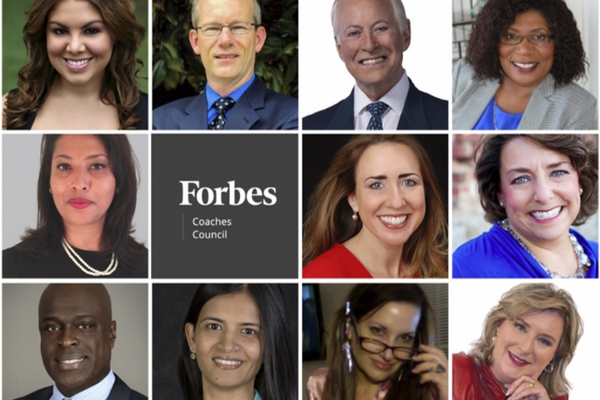

 and I share 14 Top Tips for managing the pressure cooker of work and life.
and I share 14 Top Tips for managing the pressure cooker of work and life.
 explained how an emotionally intelligent person can rein in their emotions and maintain their cool in times of high stress.
explained how an emotionally intelligent person can rein in their emotions and maintain their cool in times of high stress.
 , Training & Leadership Success LLC
, Training & Leadership Success LLC


 , Rose Cartolari Consulting
, Rose Cartolari Consulting


 , YouTern
, YouTern


 , Ilean Harris
, Ilean Harris

 , Career Pro Inc.
, Career Pro Inc.


 , Brian Tracy International
, Brian Tracy International


 , The Wright Career Solution, Brampton/Toronto
, The Wright Career Solution, Brampton/Toronto

 , ghSMART
, ghSMART


 , GreenMason
, GreenMason


 , Red Cape Revolution
, Red Cape Revolution


 , Donald Hatter Inc.
, Donald Hatter Inc.


 , Sharissa Sebastian – Life & Leadership Coaching
, Sharissa Sebastian – Life & Leadership Coaching


 , Rachel Mestre LLC
, Rachel Mestre LLC

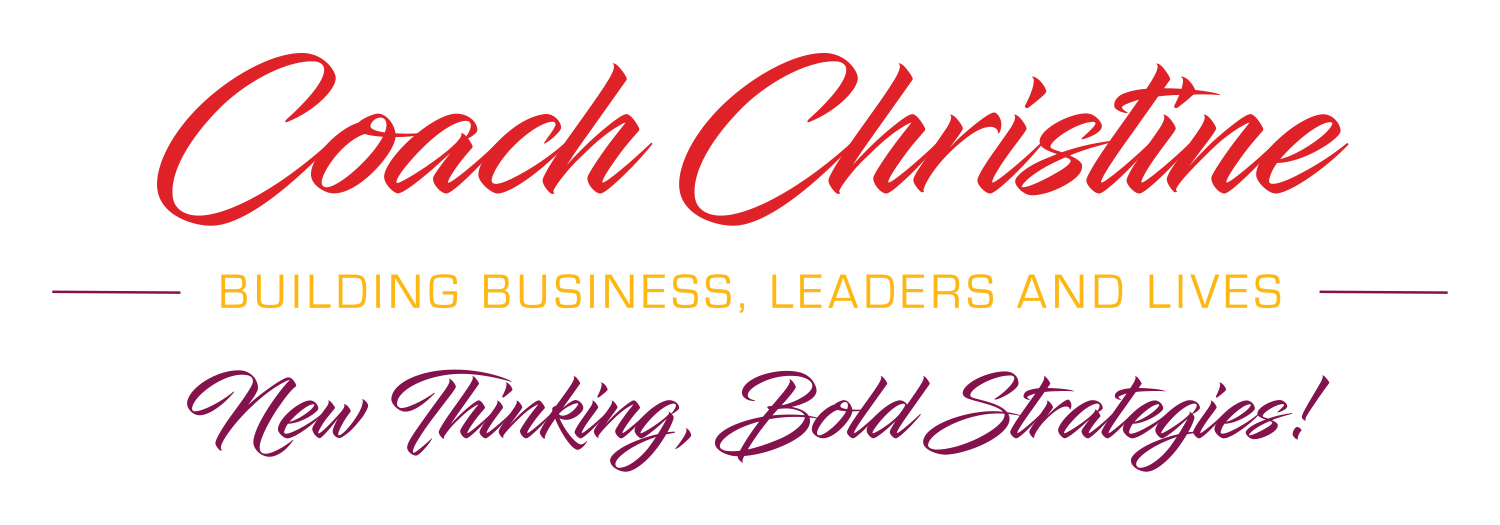
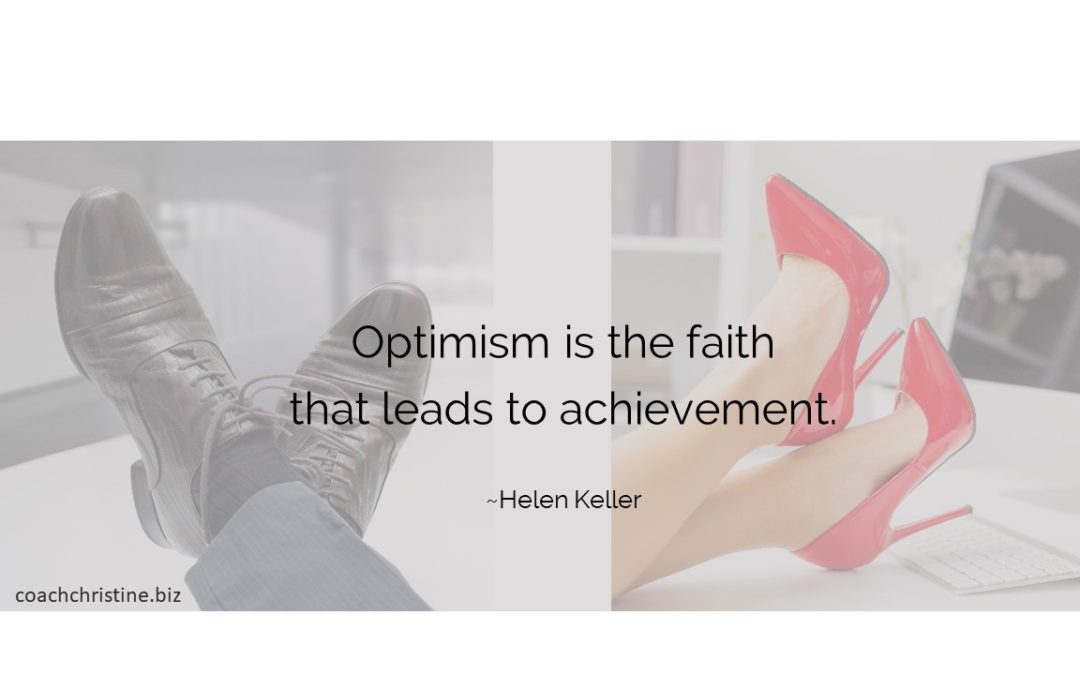
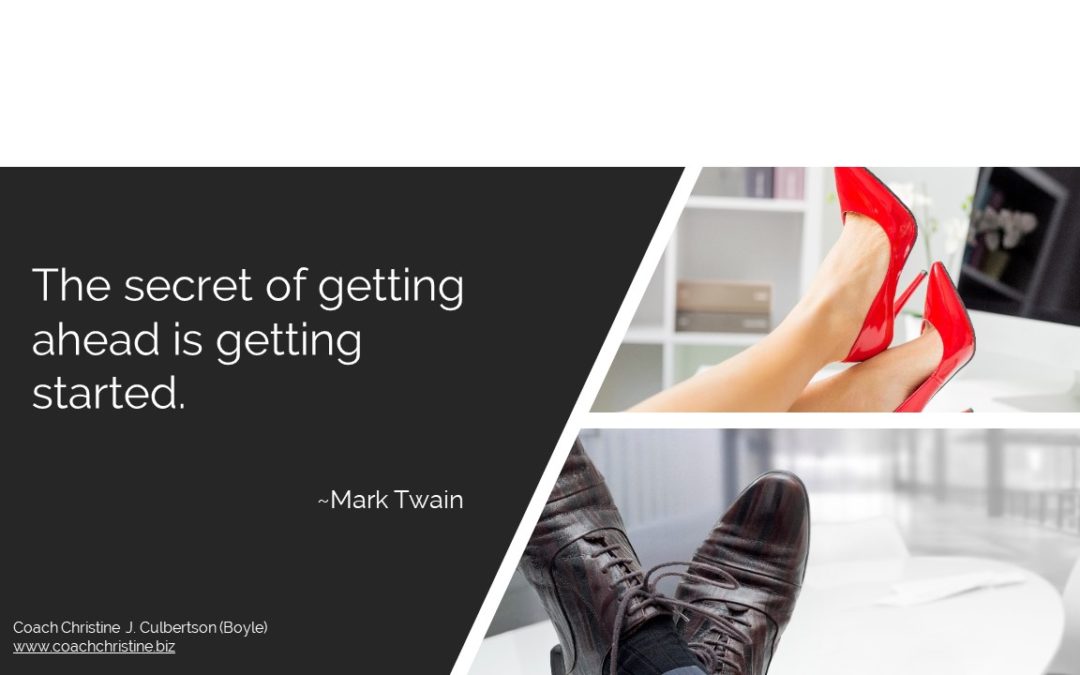


![8 Ways to Bust Obstacles and Build Your Strengths [FORBES]](https://coachchristine.biz/wp-content/uploads/2017/12/image-for-8-ways-to-bust-obstacles.jpg)